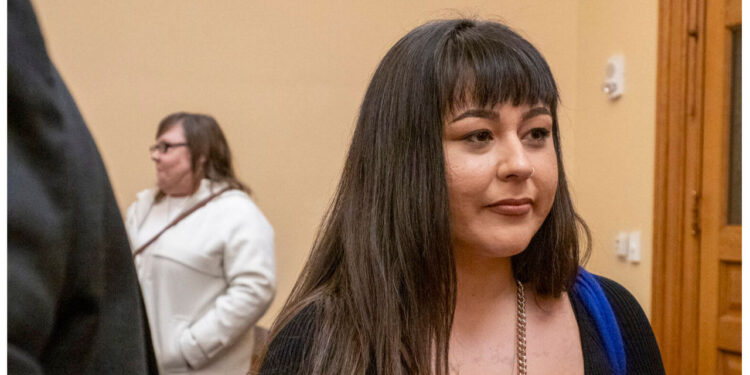Former foster care child Kristen Nicole Powell expressed her support for the new Kansas law that allows foster care participants aged 16 and older to choose an adult mentor or mentors to establish lasting legal relationships as an alternative to reunification, adoption, or the appointment of a guardian. This program aims to provide support and guidance to these young individuals as they navigate their way through their foster care journey.
Kansas Becomes First State to Allow Foster Care Children to Choose Their Legal Guardians
In a groundbreaking move, Governor Laura Kelly has officially signed a bill into law, making Kansas the first state to introduce a program that empowers children aged 16 and older in the foster care system to select an adult to establish a legally binding permanent relationship with. This innovative initiative offers an alternative to the conventional routes of family reunification, adoption, or the appointment of a guardian.
Kansas youth who are at least 16 years old and about to age out of the foster care system now have the option to be part of the Support, Opportunity, Unity, and Legal (SOUL) program. This program allows them to choose one or more trusted adults who will serve as guides during their transition into adulthood. The SOUL program aims to provide these young individuals with the support and resources they need to navigate the challenges of independent living. Through state funding and services, participants will receive assistance in areas such as finding employment, completing college, and securing safe housing. While the legal association formed through the SOUL program shares some similarities with a parent-child bond, it does not encompass all aspects of such a relationship.
Kansas Governor, a Democrat, expressed his enthusiasm for the fourth pathway, emphasizing its potential to empower children and give them a voice in their upbringing. He believes that this legislation will have a transformative impact on the lives of Kansas kids.
According to Laura Howard, the secretary of the Kansas Department for Children and Families, young individuals under the care of the state agency have the opportunity to find support and guidance from a compassionate and nurturing circle of adults during a crucial stage of their lives. Howard emphasized that the input received from individuals who have firsthand experience with foster care has been invaluable for the organization SOUL.
According to Howard, this achievement is the result of a collective effort spanning over two years. The key aspect of this endeavor was the inclusion of individuals with personal experiences, who played a central role in shaping the conversation. Their primary objective was to create opportunities for future generations of young people, going beyond the limited options of permanent custody or predetermined living arrangements.
Under the model advocated by the Annie E. Casey Foundation and incorporated into House Bill 2536 with the bipartisan support of the Kansas Legislature, SOUL participants would not have to sever legal ties with their birth parents or siblings. Moreover, it would not release biological parents from specific responsibilities, such as child support payments.
The bill signed on Monday by Kelly ensures that a child in the SOUL program has access to all the benefits they are eligible for under other legal permanency options. When deciding on a SOUL partnership, the court will prioritize appointing a relative or someone the child has a strong emotional bond with. Once the court affirms the SOUL relationship, the Department of Children and Families (DCF) will no longer have custody of the child.
Kristen Nicole Powell, who shared personal insights with legislators about her experience in foster care, provided suggestions for shaping the Kansas SOUL initiative. She emphasized the significance of young people having relationships with adults who are willing to offer care and love, even when they may not fully understand the value of those gifts. Powell, who didn’t have a family at 18, highlighted the importance of having mentors who formed a strong bond with her.
“I managed to avoid situations like imprisonment, homelessness, substance abuse, addiction, and even death,” she explained. “SOUL Family empowers individuals to make their own choices about the people they want to surround themselves with, enabling them to foster relationships that aid in their healing and escape from the system.”
The governor has also approved House Bill 2549, which modifies the individuals who must receive notification of a hearing regarding a child’s adoption petition. Additionally, House Bill 2675 establishes a legal structure that enables nonparents serving as a child’s caregiver to petition the court for visitation rights with the child.
Kelly has taken action by signing House Bill 2665 into law. This new legislation aims to strengthen criminal penalties for drivers who flee the scene of an accident that resulted in a fatality or if the driver reasonably should have known that the incident caused injury or death.

